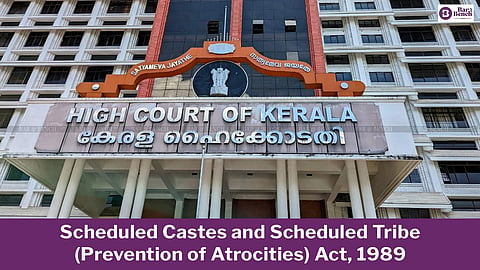
- Latest Legal News
- News
- Dealstreet
- Viewpoint
- Columns
- Interviews
- Law School
- Legal Jobs
- हिंदी
- ಕನ್ನಡ

The Kerala High Court recently dismissed a plea by a college principal seeking to quash proceedings against him under the Scheduled Castes and the Scheduled Tribes (Prevention of Atrocities) Act, 1989 (SC/ST Act) for allegedly making caste based derogatory remarks against a faculty member during a college meeting [Dr CM Kusuman v State of Kerala & ors].